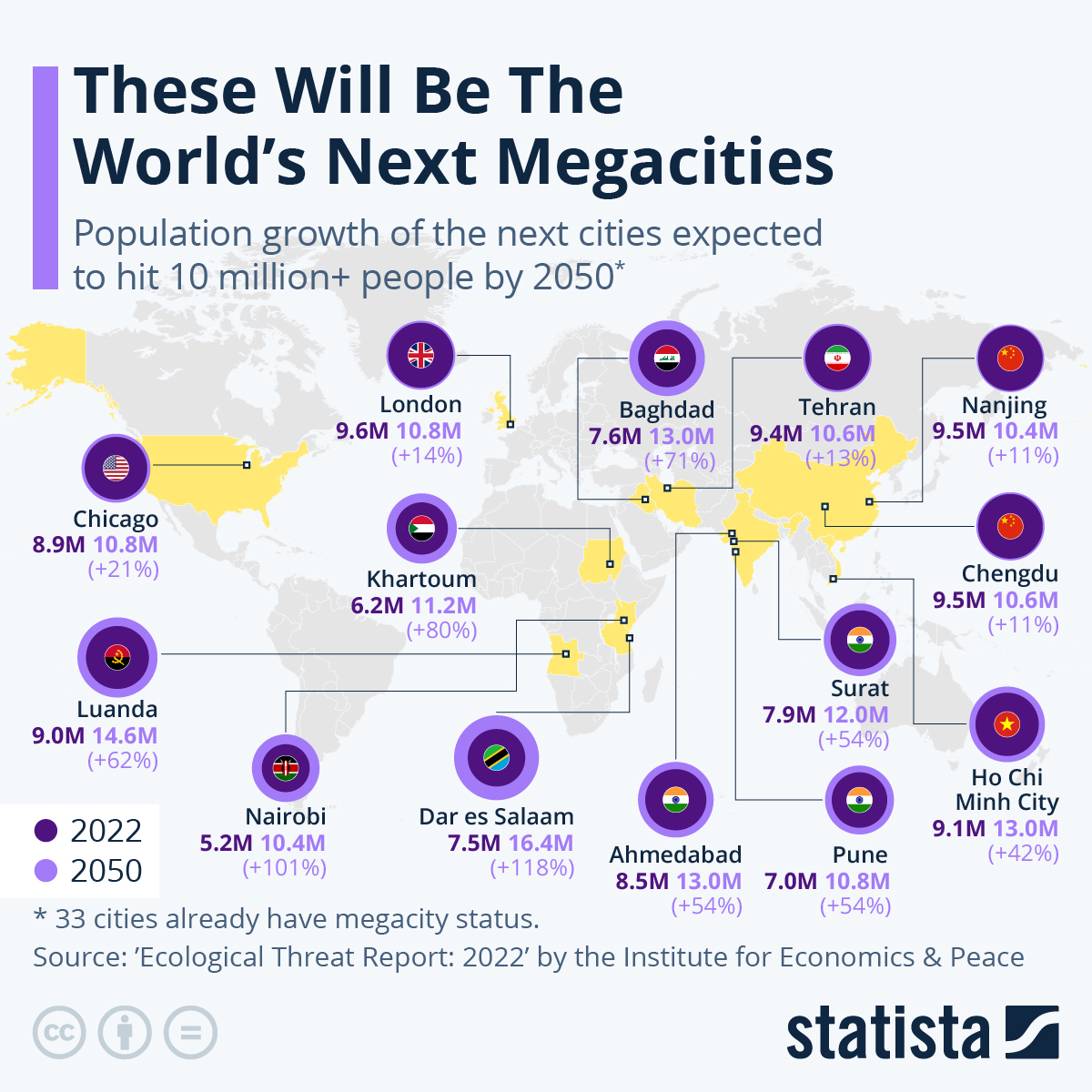Population growth is an interesting measure. Historically, growth has been slow ... but something changed that, and the implications are stunning.
Scientists estimate that humans have existed for over 130,000 years.
It wasn’t until 1804 that the world’s population reached 1 billion. The population doubled once more by 1927, 123 years later, and then again by 1974, a mere 47 years later.
The Agricultural Revolution spurred early population growth. Subsequently, since 1804, the Industrial Revolution, alongside new technologies and advancements in health and safety, has dramatically enhanced the quality of life and accelerated population growth.
The global population continues to expand as more women are giving birth, despite the statistical trend of each woman having fewer children. Here is a chart showing that.
via Axios (Click for an Interactive Graph)
World population growth rates peaked in the late 1960s and have declined sharply in the past four decades. Nonetheless, world population figures continue to grow. We’re expected to reach 9 billion people by 2050, but a lot of that growth comes from developing countries—it also almost exclusively comes from urban areas.
Urbanization: Megacities
Here is another trend worth noting. Since 2014, over 50% of the world’s population has lived in urban areas – today it’s approximately 55%. That number is growing.
Ironically, as we grow more digitally connected, our world is shrinking, and our populations are concentrating.
An interesting consequence of this rapid urbanization and population growth in developing countries has been the increased development of Megacities – defined as cities with populations greater than 10 million. Today, there are 33 megacities – more than triple the number in the 1990s.
This creates a set of interesting opportunities and challenges. For example, how will these cities deal with infrastructure (e.g., sanitation, transportation, etc.)?

via Statista
As information and money become increasingly decentralized, and it becomes easier and easier to trade and communicate globally, it’s interesting to see a centralization of the population.
What do you think the consequences will be?
Don't Walk Out On A.I. Just Yet
Amazon's 'Just Walk Out' technology has revolutionized shopping convenience, but whispers suggest there might be more to it than meets the eye...
For years, shoppers have been able to walk into one of their Amazon Fresh grocery stores, walk out, and never have to talk to a single person, or even check out.
This feat was supposedly made possible solely using machine intelligence.
However, they just announced that they're removing technology from their stores and switching to smart shopping carts.
Along with that announcement came rumors that the technology only worked due to a team of 1000 out of India. Apparently, this team was required to verify orders and correct the technology when it missed items.
On the one hand, that seems like a classic case of overpromising and underdelivering, but it's also very common. Many public-facing AI systems rely on human moderators and data labelers.
So why is Amazon being flogged in the media?
The problem for me is two-fold.
First, Artificial Intelligence is at the peak of inflated expectations on Gartner's Hype Cycle. That means the average user has high hopes and is being disappointed. It also means the average user is likely overwhelmed with apps and technologies that fail to deliver on their promises.
Second, transparency is the name of the game, especially in a black-box situation like most AI. The technology Amazon is creating is impressive—but they're also Amazon. Eyes are on them to be leaders, so when they fall short, it's a chance for naysayers to pile on.
Public perception is likely to trend downward in the next news cycle, which is to be expected. After the peak of inflated expectations comes the trough of disillusionment.
Regardless, AI will continue to become more capable, ubiquitous, and autonomous. The question is only how long until it affects your business and industry.
While Amazon has "walked out" on that technology in its stores, it's not time to "walk out" on AI just yet. Numerous stores still use that or similar technologies.
Posted at 09:00 PM in Business, Current Affairs, Food and Drink, Gadgets, Ideas, Market Commentary, Science, Trading, Trading Tools, Web/Tech | Permalink | Comments (0)
Reblog (0)